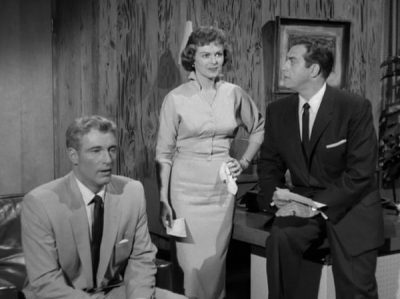
My Landlord Says He’s Bankrupt, So How Do I Get My Deposit Back?
Bankrupt landlord.
I vacated my San Francisco, CA apartment over a year ago (I know!) when I was laid off, and never received my deposit. I completed my lease term and left the apartment in excellent condition. Upon moving out, I received an invoice from the landlord stating that I was owed my deposit plus interest. Well, it never came. I sent over a demand letter asking for my deposit to be mailed by a certain date, and just yesterday I received an email from the landlord stating that the property in which I rented a unit has been given to a receiver. I’m assuming this means that the property is now in foreclosure, yes? Anyway, the landlord went on to say that many others that were living in the building have already sued him for their deposits; they’ve all won, but weren’t able to collect because the property no longer makes any money for him. He personally has filed for bankruptcy.
What am I to do at this point? I think the amount in question is too small to take to an attorney’s office (it’s just over $2K), but I don’t think the San Francisco Tenants Union or even small claims can help me out with this one.
I have read various answers online – folks have said, “No, you cannot sue, that’s out of the question!” and someone else said, “The person or company that owns your building must return your security deposit to you. The law is quite clear on this point. On sale of the building, whether an ordinary sale or a foreclosure sale, your security deposit must either be transferred to the new owner or returned to you. And it’s the responsibility of the new owner to collect the security deposit from your former landlord. If the lender didn’t get the security deposit you paid, it’s not your problem. The lender still has to return it to you. If it’s not returned to you within three weeks after you move, you can sue the lender in Small Claims Court, just as you would any landlord, to recover the money.” (This was taken from Tenants and Foreclosure in California). Yet another said, “Sue him anyway in small claims, and try to put a lien on his property. There are other ways to collect!”
That guilty “I know” means you’ve been reading my columns. Once again, dear readers, if you don’t get your security deposit back twenty-one days after you move out and you can prove you deserve it, you gotta sue. Case in point, if this smug sleazeball wasn’t bankrupt a year ago, you’d have a judgment against him. Maybe you could have collected it, maybe not. At the very least you might be on his list of creditors for $6,000.00 rather than in limbo with a smaller chance of collecting $2,000.00!
But all is not lost. First, you need to figure out if the landlord is in foreclosure, if he filed for bankruptcy, or more interesting, if the bank now owns the property. Or even more interesting, is the landlord simply a lying sack of shit? What? You didn’t consider that possibility? Well, dear readers, that’s lesson two for today. Why would you believe anything that comes out of the landlord’s mouth (or ip address) without checking it out?
Get the block and lot numbers for the building. Check out the SF Assessor-Recorder’s website. for the San Francisco Assessor-Recorder’s office. Check the disclaimer and fill in the address. Remember that if your building has a series of addresses use the first one. As I was checking the viability of the link, once again I realized that this is one of the squirreliest websites run by the City. Everyone should write a letter to Phil Ting and tell him to fix it.
When and if you find the block and lot number, go to the Recorded Document Search By Year Menu, also part of the Assessor-Recorder’s site. Use the block and lot search rather than the address search. I’ve found that to be more precise. You won’t be able to see the documents but you should be able to tell if the building is in foreclosure. Check for Notice of Default, or look and the grantor/grantee in the latest deed. If you want to see the documents, you have to go to City Hall.
Next you have to know if the landlord declared bankruptcy. You will have to either visit the U.S. Bankruptcy Court or for online information subscribe to the Public Access to Court Electronic Records (PACER) service. You will have to pay small fees for either means of access.
In a nutshell, if the landlord has filed for bankruptcy, there may be a stay on any lawsuits, meaning you can’t file one against him. You should, whatever the status of the case, contact the trustee and demand to be included in the list of creditors. Civil Code 1950.5(d) is clear, “Any security shall be held by the landlord for the tenant who is party to the lease or agreement. The claim of a tenant to the security shall be prior to the claim of any creditor of the landlord.” Here is where you have the, not ironic, luck of the Irish. The landlord admitted, in writing, to owing you the money.
If the landlord is in foreclosure and still owns the property, but not in bankruptcy, SUE HIM NOW.
If the building has been sold at a Trustee Sale, SUE THE NEW OWNER NOW! Civil Code 1950.5(h) provides for the transfer of security deposits to a new owner and refund to the tenant, if applicable. Civil Code 1950.5(j) states in part, “In the event of noncompliance with subdivision (h), the landlord’s successors in interest shall be jointly and severally liable with the landlord for repayment of the security […]“
Today is the day to think green, that is, about getting your money back. You don’t need a leprechaun for this. You may need a few shots of Jameson. But what you really need are the guts and persistence to stand up for your rights.

 This is a dance you probably shouldn't try to do by yourself. Almost all tenants need a lawyer to lead. You likely have a better chance buying a house than you do prevailing in an unlawful detainer by defending yourself.
This is a dance you probably shouldn't try to do by yourself. Almost all tenants need a lawyer to lead. You likely have a better chance buying a house than you do prevailing in an unlawful detainer by defending yourself.
Trackbacks/Pingbacks